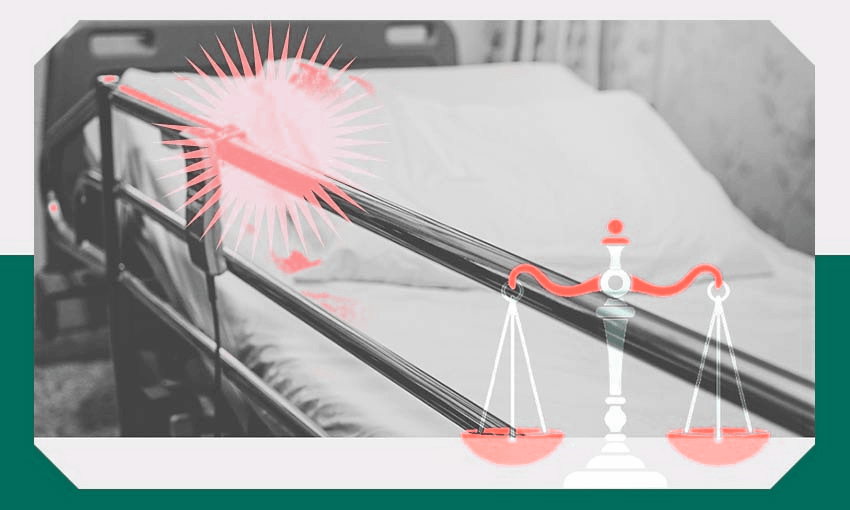While the implementation of the new legislation is unknown territory, hospices will continue to do all they can to ensure patients live as full and comfortable lives as possible, no matter how their life ends, writes Craig Tamblyn of Hospice Waikato.
As CEO of the second-largest hospice in New Zealand, I’ve been bewildered by how silent our community has been as the End of Life Choice Act came into force on November 7.
As our country fiercely debated the legalisation of end-of-life choice last year, I likened the passion surrounding the issue to New Zealand’s amendment of abortion laws in March 2020. But if I compare the debate leading up to the referendum to an erupting volcano, legalisation seemed to sneak in without so much as a faint puff of smoke.
A quick review of the small handful of media articles written over the past month shows many covered how hospices will – or will not – work with end-of-life service providers. Frankie Bennett’s opinion piece in The Spinoff earlier this week is one such article.
My fear, however, is that without a balanced view of the reality on the ground, the community could read these articles and conclude that hospices are not putting patient choice at the forefront. But Hospice Waikato is working in harmony with end-of-life service providers.
At any one time, we are working with around 400 patients to deliver palliative care primarily in homes throughout the region from Coromandel to National Park. And the key message to our patients and their families as the act came into force was: our palliative care service remains exactly the same.
If one of our patients chooses to access assisted dying services through an approved provider, they remain a Hospice Waikato patient up until the end of their life. And their family and whānau can still access bereavement counselling.
Like many hospices, Hospice Waikato has chosen not to become an approved provider of assisted dying services. That means interventions will not happen at our 11-bed in-patient unit in Hamilton, and our staff will not participate in interventions or be present when they occur.
But if you only dwell on these two things we will not do, you miss what Hospice Waikato will do.
Our team will always respect a patient’s choice to access assisted dying services and will refer them to SCENZ if they want to investigate the option. We will support patients who choose end-of-life services up to the time of intervention and they will not be discharged from our care. We will support family and whānau with bereavement support just as we do now.
And most importantly, Hospice Waikato will continue to do all we can to ensure patients live as full and comfortable lives as possible, no matter how their life ends.
There may be misunderstanding by some that because Hospice Waikato is not an end-of-life service provider, we will block access to the service, not facilitate open discussions, or even “turf” people out of our in-patient unit and onto the streets to fend for themselves. This is simply not the case. We put patient respect at the centre of everything we do and implying Hospice Waikato – or any other hospice, for that matter – would act in such a way is incredibly disrespectful to our highly skilled and caring staff.
While I can make the above commitments with complete certainty, I do acknowledge that implementation of the new legislation is unknown territory for Hospice Waikato. The fact is, we are still working “in theory” as we haven’t had a patient access the service yet. Our team of 130 nurses, doctors and administrators certainly feel like we are all on a new journey together – a journey whose roadmap is not entirely clear.
For instance, we haven’t yet received well-defined guidelines from the Ministry of Health or SCENZ regarding the detailed aspects of the service or how referrals from hospice will work in practice. We understand these are still coming.
A further unknown is how our counselling team will navigate the complicated situation of when a patient chooses – as the legislation allows – not to involve family and whānau in their end-of-life decisions. Our team of bereavement counsellors will have an entirely new set of challenges helping whānau who did not know about their family member’s decision or did not agree with it. Cultural issues surrounding end-of-life choice, particularly for Māori and Pasifika whānau, will add another complex layer to bereavement support.
So while the team at Hospice Waikato is not quite sure what to expect as implementation of the new legislation plays out, some things are for certain: we will continue putting our patients’ needs first, always respect their choices, and be there to support their family and whānau as we always have.
